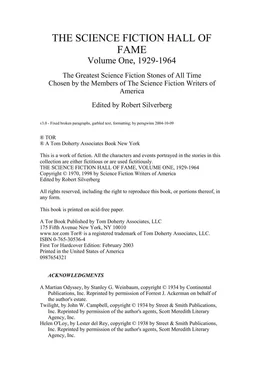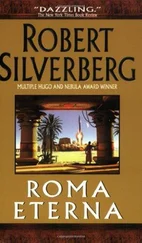II
I had just closed the door behind Betty, after a brief grammar session, when I heard the voices in the hall. My vent was opened a fraction, so I stood there and eavesdropped:
Morton's fruity treble: "Guess what? He said 'hello' to me awhile ago."
"Hmmph!" Emory's elephant lungs exploded. "Either he's slipping, or you were standing in his way and he wanted you to move."
"Probably didn't recognize me. I don't think he sleeps any more, now he has that language to play with. I had night watch last week, and every night I passed his door at 0300—I always heard that recorder going. At 0500 when I got off, he was still at it."
"The guy is working hard," Emory admitted, grudgingly. "In fact, I think he's taking some kind of dope to keep awake. He looks sort of glassy-eyed these days.
Maybe that's natural for a poet, though."
Betty had been standing there, because she broke in then:
"Regardless of what you think of him, it's going to take me at least a year to learn what he's picked up in three weeks. And I'm just a linguist, not a poet."
Morton must have been nursing a crush on her bovine charms. It's the only reason I can think of for his dropping his guns to say what he did.
"I took a course in modern poetry when I was back at the university," he began.
"We read six authors—Yeats, Pound, Eliot, Crane, Stevens, and Gallinger—and on the last day of the semester, when the prof was feeling a little rhetorical, he said,
'These six names are written on the century, and all the gates of criticism and hell shall not prevail against them.'
"Myself," he continued, "I thought his Pipes of Krishna and his Madrigals were great. I was honored to be chosen for an expedition he was going on.
"I think he's spoken two dozen words to me since I met him," he finished.
The Defense: "Did it ever occur to you," Betty said, "that he might be tremendously self-conscious about his appearance? He was also a precocious child, and probably never even had school friends. He's sensitive and very introverted."
"Sensitive? Self-conscious?" Emory choked and gagged. "The man is as proud as Lucifer, and he's a walking insult machine. You press a button like 'Hello' or 'Nice day' and he thumbs his nose at you. He's got it down to a reflex."
They muttered a few other pleasantries and drifted away.
Well bless you, Morton boy. You little pimple-faced, Ivy-bred connoisseur! I've never taken a course in my poetry, but I'm glad someone said that. The Gates of Hell.
Well now! Maybe Daddy's prayers got heard somewhere, and I am a missionary, after all!
Only...
... Only a missionary needs something to convert people to. I have my private system of esthetics, and I suppose it oozes an ethical byproduct somewhere. But if I ever had anything to preach, really, even in my poems, I wouldn't care to preach it to such lowlifes as you. If you think I'm a slob, I'm also a snob, and there's no room for you in my Heaven—it's a private place, where Swift, Shaw, and Petronius Arbiter come to dinner.
And oh, the feasts we have! The Trimalchio's, the Emory's we dissect!
We finish you with the soup, Morton!
I turned and settled at my desk. I wanted to write something. Ecclesiastes could take a night off. I wanted to write a poem, a poem about the one hundred-seventeenth dance of Locar; about a rose following the light, traced by the wind, sick, like Blake's rose, dying
I found a pencil and began.
When I had finished I was pleased. It wasn't great—at least, it was no greater than it needed to be—High Martian not being my strongest tongue. I groped, and put it into English, with partial rhymes. Maybe I'd stick it in my next book. I called it Braxa:
In a land of wind and red, where the icy evening of Time freezes milk in the breasts of Life, as two moons overhead—cat and dog in alleyways of dream—scratch and scramble agelessly my flight...
This final flower turns a burning head.
I put it away and found some phenobarbital. I was suddenly tired.
When I showed my poem to M'Cwyie the next day, she read it through several times, very slowly.
"It is lovely," she said. "But you used three words from your own language. 'Cat'
and 'dog,' I assume, are two small animals with a hereditary hatred for one another.
But what is 'flower'?"
"Oh," I said. "I've never come across your word for 'flower,' but I was actually thinking of an Earth flower, the rose."
"What is it like?"
"Well, its petals are generally bright red. That's what I meant, on one level, by
'burning heads.' I also wanted it to imply fever, though, and red hair, and the fire of life. The rose, itself, has a thorny stem, green leaves, and a distinct, pleasing aroma."
"I wish I could see one."
"I suppose it could be arranged. I'll check."
"Do it, please. You are a—" She used the word for "prophet," or religious poet, like Isaiah or Locar. "—and your poem is inspired. I shall tell Braxa of it."
I declined the nomination, but felt flattered.
This, then, I decided, was the strategic day, the day on which to ask whether I might bring in the microfilm machine and the camera. I wanted to copy all their texts, I explained, and I couldn't write fast enough to do it.
She surprised me by agreeing immediately. But she bowled me over with her invitation.
"Would you like to come and stay here while you do this thing? Then you can work night and day, any time you want—except when the Temple is being used, of course."
I bowed.
"I should be honored."
"Good. Bring your machines when you want, and I will show you a room."
"Will this afternoon be all right?"
"Certainly."
"Then I will go now and get things ready. Until this afternoon ..."
"Goodbye."
I anticipated a little trouble from Emory, but not much. Everyone back at the ship was anxious to see the Martians, poke needles in the Martians, ask them about Martian climate, diseases, soil chemistry, politics, and mushrooms (our botanist was a fungus nut, but a reasonably good guy)—and only four or five had actually gotten to see them. The crew had been spending most of its time excavating dead cities and their acropolises. We played the game by strict rules, and the natives were as fiercely insular as the nineteenth-century Japanese. I figured I would meet with little resistance, and I figured right.
In fact, I got the distinct impression that everyone was happy to see me move out.
I stopped in the hydroponics room to speak with our mushroom master.
"Hi, Kane. Grow any toadstools in the sand yet?"
He sniffed. He always sniffs. Maybe he's allergic to plants.
"Hello, Gallinger. No, I haven't had any success with toadstools, but look behind the car barn next time you're out there. I've got a few cacti going."
"Great," I observed. Doc Kane was about my only friend aboard, not counting Betty.
"Say, I came down to ask you a favor."
"Name it."
"I want a rose."
"A what?"
"A rose. You know, a nice red American Beauty job—thorns, pretty smelling—"
"I don't think it will take in this soil. Sniff, sniff."
"No, you don't understand. I don't want to plant it, I just want the flowers."
"I'd have to use the tanks." He scratched his hairless dome. "It would take at least three months to get you flowers, even under forced growth."
"Will you do it?"
"Sure, if you don't mind the wait."
"Not at all. In fact, three months will just make it before we leave." I looked about at the pools of crawling slime, at the trays of shoots.
"—I'm moving up to Tirellian today, but I'll be in and out all the time. I'll be here when it blooms."
"Moving up there, eh? Moore said they're an in-group."
"I guess I'm 'in' then."
Читать дальше












